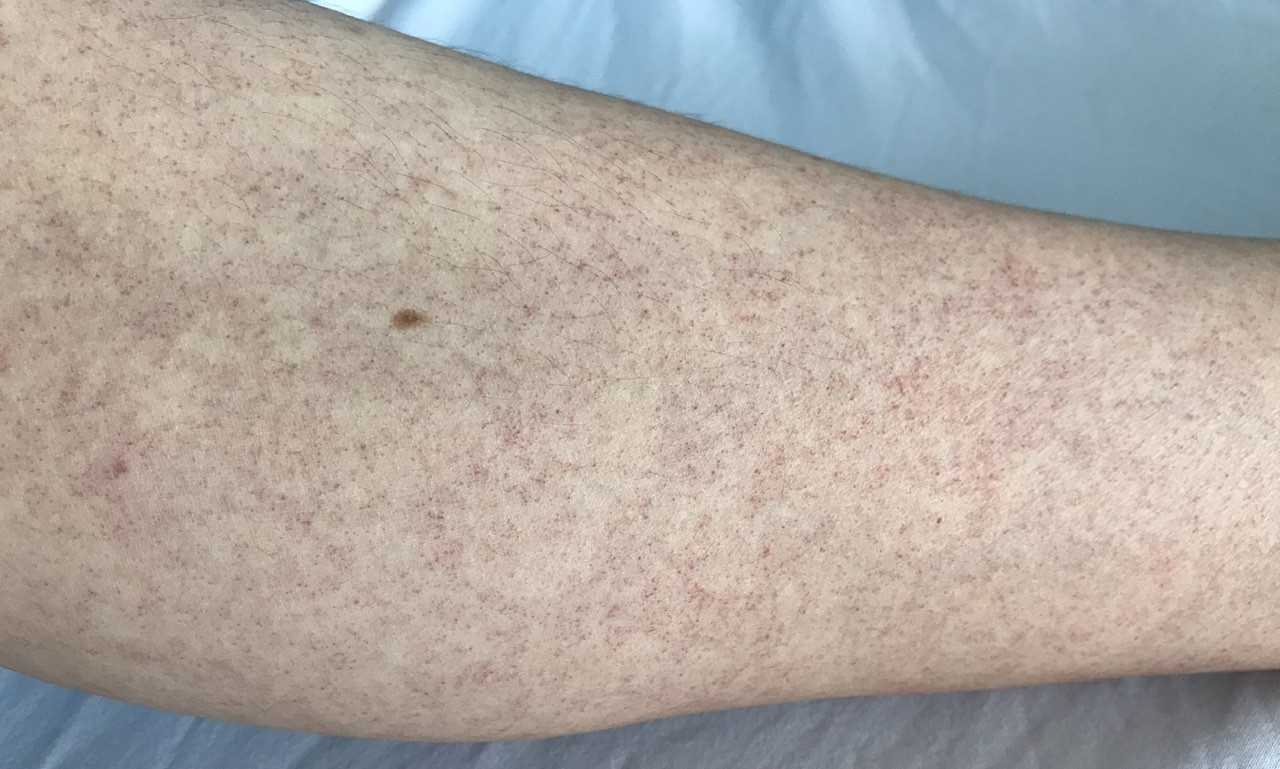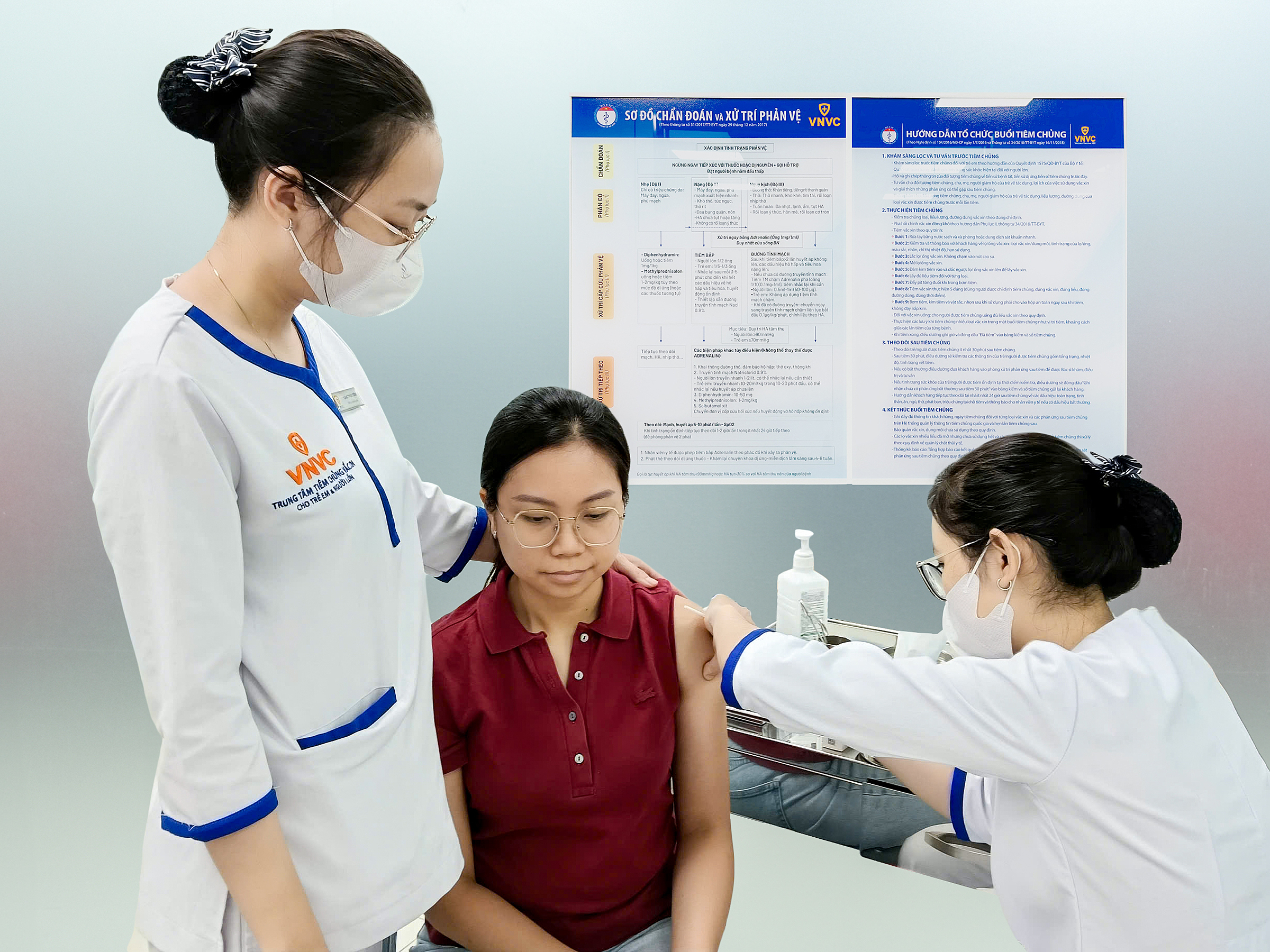The 51-year-old woman vividly recalls November 2021, when she was diagnosed with dengue fever and admitted to a district hospital. At the time, the Covid-19 pandemic was still prevalent, so she was hospitalized without family to care for her. Due to persistent fever and a decreasing platelet count, she was transferred to a tertiary care hospital.
She relied on doctors and nurses for daily activities and meals. Every day, blood tests monitored her platelet levels.
 |
Rashes on Bich's legs during hospitalization. Photo: NVCC |
"The most haunting memory is sharing a room with critically ill patients. Heavy bleeding stained the white sheets. Some patients were so ill they were transferred, and I never knew what happened to them," Bich said.
After recovering, Bich experienced decreased stamina, fatigue, hair loss, and graying. When she learned about the availability of a dengue vaccine in Vietnam, she took her family to get vaccinated. In addition to the dengue vaccine, her family also received other vaccines for influenza, pneumococcal disease, and shingles.
"I understand that no vaccine offers 100% protection, but I hope that if we do get infected, it won't be severe. I don't want to experience dengue again," Bich shared.
Dang Khoa, 31, living in Ho Chi Minh City, also contracted dengue fever 6 years ago. He didn't seek medical attention despite a prolonged high fever. Only when he became delirious and developed a widespread rash did an acquaintance find him and take him to the hospital.
"I only remember reaching the hospital gate before losing consciousness. Waking up after three days in a coma, the doctor said I would have died if I had arrived just a few minutes later," Khoa recounted.
Since then, he has prioritized his health, setting aside savings for vaccinations and exercising. Recently, he learned about the dengue vaccine through Facebook and went to the VNVC vaccination center.
Doctor Le Thi Gam, Medical Manager of the VNVC Vaccination System, explained that dengue fever is a viral infection transmitted by the Aedes Aegypti mosquito. Four serotypes of the dengue virus exist: Den-1, Den-2, Den-3, and Den-4. An individual can contract dengue up to 4 times, with the risk of severe illness increasing with each subsequent infection.
Dengue fever can lead to serious complications like bleeding, fluid leakage, blood clotting disorders, dengue shock syndrome, and multiple organ failure. Treatment for severe cases is often expensive, requiring significant recovery time and potentially leading to long-term effects such as fatigue, muscle and joint pain, hair loss, weakness, and memory impairment.
 |
People receiving the dengue fever vaccine at the VNVC Vaccination Center System. Photo: Khanh Hoa |
A 2022 Singaporean study of 48 dengue patients found that 95.8% experienced side effects like drowsiness, fatigue, difficulty concentrating, and memory impairment in the first week after discharge, with 18% suffering from chronic issues. These effects can significantly impact work and quality of life.
To prevent dengue fever, Doctor Gam advises maintaining well-ventilated homes, eliminating stagnant water, wearing long clothing, and using mosquito nets, even during the day. Vaccination is a proactive and effective preventive measure.
The Qdenga dengue vaccine (Japan) is available in Vietnam, offering over 80% protection and reducing the risk of hospitalization by over 90%. The vaccination schedule consists of two doses, three months apart. Women are advised to complete the vaccination schedule at least one month, and ideally three months, before pregnancy.
Hoang Duong












